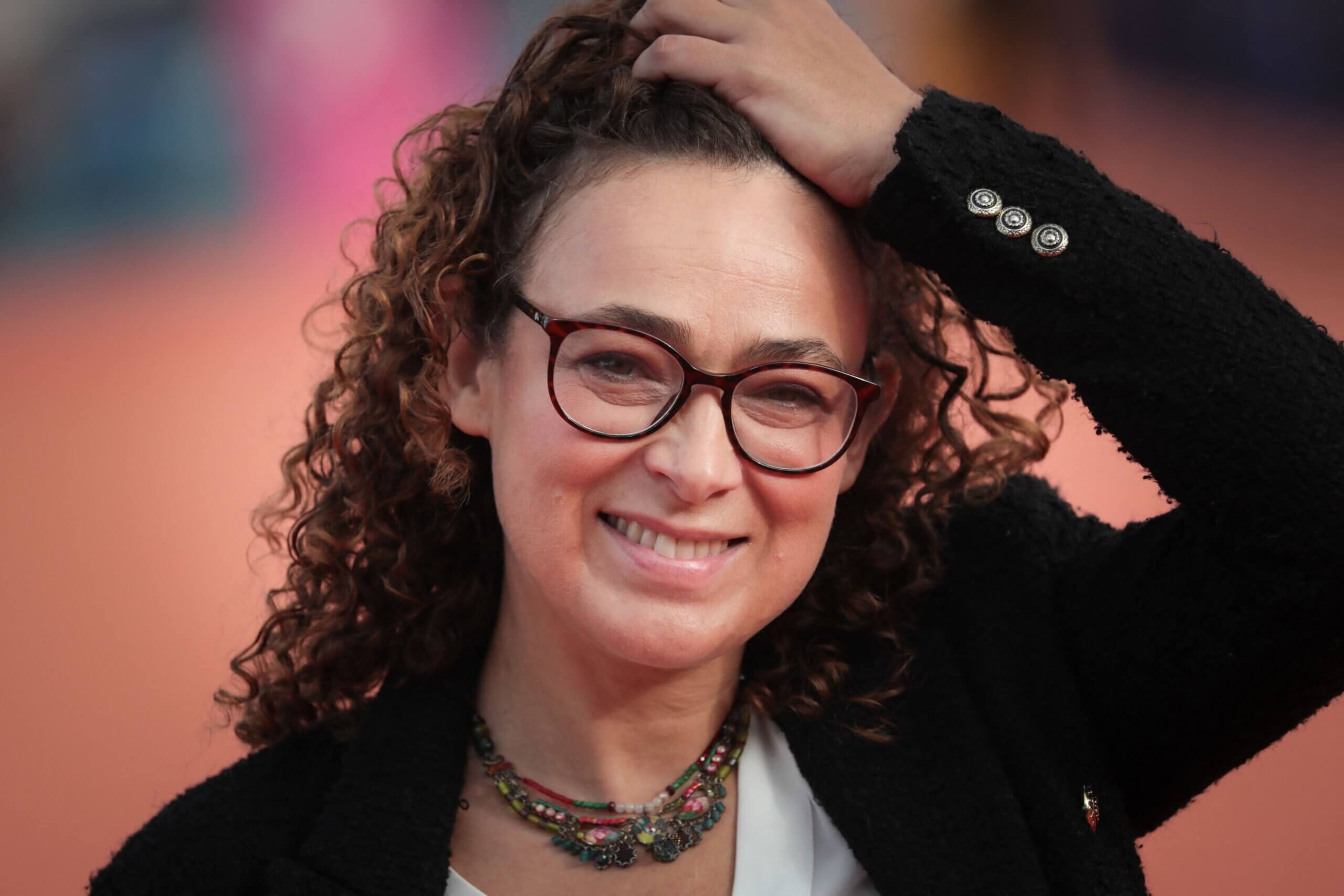At the forefront of French opposition to the war in Gaza, the superstar rabbi who inspired an HBO series
Decrying destruction, death and famine, Delphine Horvilleur is practicing what she’s been preaching

Delphine Horvilleur at the Deauville film festival in 2023. Photo by Getty Images
Last month, a French rabbi confessed to having been silent for too long. “I often felt the injunction to remain silent, sometimes stifling the urge to speak so as not to encourage the dangerous rubbish said by others and who demonize an entire people in the name of helping others.” But, she continued, “it is urgent to start to speak again.”
What she said afterwards caused a political earthquake in France.
The rabbi was Delphine Horvilleur. Among the handful of female rabbis in France, Horvilleur has become one of the most prominent and powerful public intellectuals in the country. The author of several best-selling books, the director of the progressive Jewish review Tenoua, and the inspiration for the successful French series Le Sens des choses — now streaming as Reformed on HBO Max — Horvilleur’s voice carries clear and far.
Her column in the French Jewish intellectual magazine Tenoua caught the attention of French Jews and non-Jews alike. How could it not when the inscription etched in the wall of her synagogue is taken from Leviticus: “Love the other as you love yourself.” This rule carries consequences we must acknowledge and act upon. As she wrote, “I speak out of love for the country I love dearly, but also out of affliction in seeing Israel led astray into political disaster and moral bankruptcy, as well out of the suffering now endured by the people of Gaza.”
Tragically, perhaps inevitably, Horvilleur has since been pummeled by the rightwing media in Israel and received death threats in France. Nevertheless, she has not been the only prominent French Jew to feel the urgency, suppressed since Oct. 7, 2023, to start speaking. A few months before Horvilleur’s column appeared, the well-known Franco-American television journalist and interviewer Anne Sinclair, whose Jewish parents fled France in 1940, took to the pages of the magazine Le Point to denounce Israel’s actions in Gaza.
“The destruction, death, and famine inflicted on civilians in Gaza are insupportable,” Sinclair wrote. “The ordeal of mothers and the old, the death and mutilation of children cannot leave Jews indifferent and silent. It is time for this war to stop. Nothing in the world can avenge the atrocities committed on Oct. 7, especially not the annihilation and starvation of a civilian population.”
More recently, yet other prominent French Jews have begun to make their voices heard. Two weeks ago, several dozen Jewish and non-Jewish artists and academics signed an open letter published in La Tribune calling upon European leaders to assume the role once played by the United States to reach a cease-fire in Gaza. Their letter rightly denounces those who defend or even refuse to acknowledge the unspeakable crimes committed by Hamas. At the same time, though, they also condemn the government for twisting a righteous war against a merciless invader into criminal war against civilians to keep Netanyahu out of jail and keep religious fanatics like Smotrich and Ben-Gvir in office:
“We are outraged over the plight of Palestinians, concerned for the soul of Israel, a land we love,” they affirmed, adding they “stand both with those Israeli civilians who oppose their government as well with those Palestinians who dare to defy Hamas in Gaza.”
Of course, we are right to wonder if public declarations made by intellectuals of one stripe or another do much to those who read or listen to them. The professional malady of public intellectuals in France today is that they take themselves far more seriously than the French public does. Nevertheless, even if the age no longer belongs to the Zolas and Sartres, but instead to influencers and podcasters, the voices we now hear again in France might well reflect, if not inflect, a wider sentiment that Israel’s prosecution of the war will lead only to the prosecution of its leaders for war crimes.
What is more certain is that, in their various ways, these Jewish intellectuals now insist the time is long past to stop the killing and maiming. Perhaps too long past to adopt the command in Leviticus. For the moment, loving the other as you love yourself is a bridge too far. Perhaps the Book of Matthew’s variation on the Golden Rule — “You shall not do to others what you don’t want done to you” — makes more sense. Namely, let us at least avoid doing to one other what we have been doing to each other for decades.
In her recent book, Vivre avec nos morts (Living With Our Dead), Horvilleur observes that when a nation confronts a collective tragedy, there is “something that is always torn away from the families of the victims, something to which they have the right: the acknowledgment of suffering too deep for us to know.” We owe them not only this acknowledgment, but also the avowal that for those families, on both sides of this blood-stained border who have lost loved ones, who have lost loved ones, we are tasked with the duty not to spill yet more blood.
















